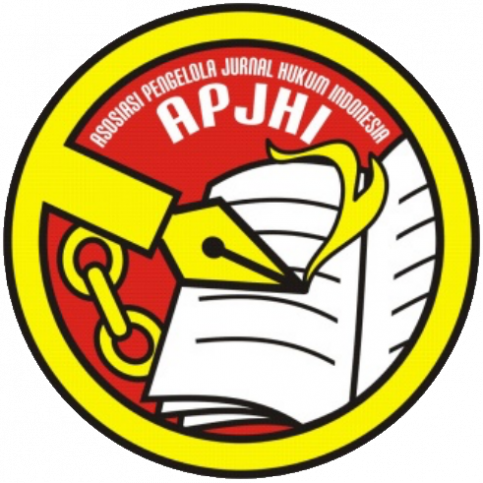PROFESIONALISME TENAGA KESEHATAN DALAM PENANGANAN KEGAWATDARURATAN COVID-19
DOI:
https://doi.org/10.53337/jhki.v2i01.20Keywords:
Darurat, Kesehatan, Penanganan, Profesional, RisikoAbstract
COVID-19 is an emergency that must be treated immediately by medical personnel. Handling the COVID-19 outbreak is the biggest challenge for health workers. Health workers need training for handling COVID-19 emergency cases because of the high risk in handling emergency cases. Patient safety is the main priority in handling emergency cases. The method used in this paper is a literature review study that aims to explore the professionalism of health workers in handling COVID-19 emergencies. The professionalism of health workers in handling COVID-19 emergencies consists of the main aspects, namely professional care in providing health services, competent health workers in handling COVID-19 emergencies, health workers having professional wisdom for handling COVID-19 emergencies, professional health workers having interpersonal competence, able to empower positive communication and partnerships with the patient's family, professional health workers develop themselves both personally and professionally, which is a prerequisite for true professionalism.
References
Adeli, S., Heidari, M., & Heidari, A. (2020). Human resources and patient rights during COVID-19 pandemic in Iran. In Journal of Medical Ethics and History of Medicine (Vol. 13, Issue 10, pp. 1–4). Tehran University of Medical Sciences. https://doi.org/10.18502/jmehm.v13i10.4384
Canet-Vélez, O., Botigué, T., Lavedán Santamaría, A., Masot, O., Cemeli, T., & Roca, J. (2021). The perception of training and professional development according to nursing students as health workers during COVID-19: A qualitative study. Nurse Education in Practice, 53(May), 0–2. https://doi.org/10.1016/j.nepr.2021.103072
Casey, M., Cooney, A., O’ Connell, R., Hegarty, J.-M., Brady, A.-M., O’ Reilly, P., Kennedy, C., Heffernan, E., Fealy, G., McNamara, M., & O’ Connor, L. (2017). Nurses’, midwives’ and key stakeholders’ experiences and perceptions on requirements to demonstrate the maintenance of professional competence. Journal of Advanced Nursing, 73(3), 653–664. https://doi.org/10.1111/jan.13171
Damayanti, F. N., Absori, A., Wardiono, K., & Rejeki, S. (2020). The evidence-based midwife professionalism. Indian Journal of Forensic Medicine and Toxicology, 14(3), 1877–1881. https://doi.org/10.37506/ijfmt.v14i3.10699
Dean, E. (2017). Enabling professionalism in practice. Nursing Management (Harrow, London, England?: 1994), 24(4), 15. https://doi.org/10.7748/nm.24.4.15.s18
Fatatun, I. D. (2018). Penanganan Kegawatdaruratan Medik Dalam Perspektif Negara Kesejahteraan. 28–35.
Glasper, A. (2017). Professionalism in practice. British Journal of Nursing, 26(12), 706–707. https://doi.org/10.12968/bjon.2017.26.12.706
Hager, E., Id, I. A. O., Id, O. B., & Zainab, A. (2020). Knowledge , attitude , and perceptions towards the 2019 Coronavirus Pandemic?: A bi-national survey in Africa. 1–13. https://doi.org/10.1371/journal.pone.0236918
Helmy, A., Samat, A., Med, E., Isa, M. H., Med, E., Sabardin, D. M., Jamal, S., Jaafar, M. J., Orth, M., Hamzah, F. A., Em, M., Mahmud, A., Sanip, A., Mohammad, S., Ali, S., Saiboon, I. M., & Orth, M. (2020). Knowledge and Confidence Level Among Emergency Healthcare Workers in Airway Management and Resuscitation of Suspected COVID-19 Patients?: A Cross Sectional Study in Malaysia. 49(9).
Market, S., & East, M. (2021). COVID ? 19 management in the emergency ward. https://doi.org/10.4103/jrms.JRMS
Pan, L., Mu, M., Yang, P., Sun, Y., Wang, R., Yan, J., Li, P., Hu, B., Wang, J., Hu, C., Jin, Y., Niu, X., Ping, R., Du, Y., Li, T., Xu, G., Hu, Q., & Tu, L. (2020). Clinical characteristics of COVID-19 patients with digestive symptoms in Hubei, China: A descriptive, cross-sectional, multicenter study. American Journal of Gastroenterology, 115(5), 766–773. https://doi.org/10.14309/ajg.0000000000000620
Roca, J., Canet-Vélez, O., Cemeli, T., Lavedán, A., Masot, O., & Botigué, T. (2021). Experiences, emotional responses, and coping skills of nursing students as auxiliary health workers during the peak COVID-19 pandemic: A qualitative study. International Journal of Mental Health Nursing, 30(5), 1080–1092. https://doi.org/10.1111/inm.12858
Downloads
Published
How to Cite
Issue
Section
License
Copyright (c) 2022 JURNAL HUKUM KESEHATAN INDONESIA

This work is licensed under a Creative Commons Attribution-ShareAlike 4.0 International License.















